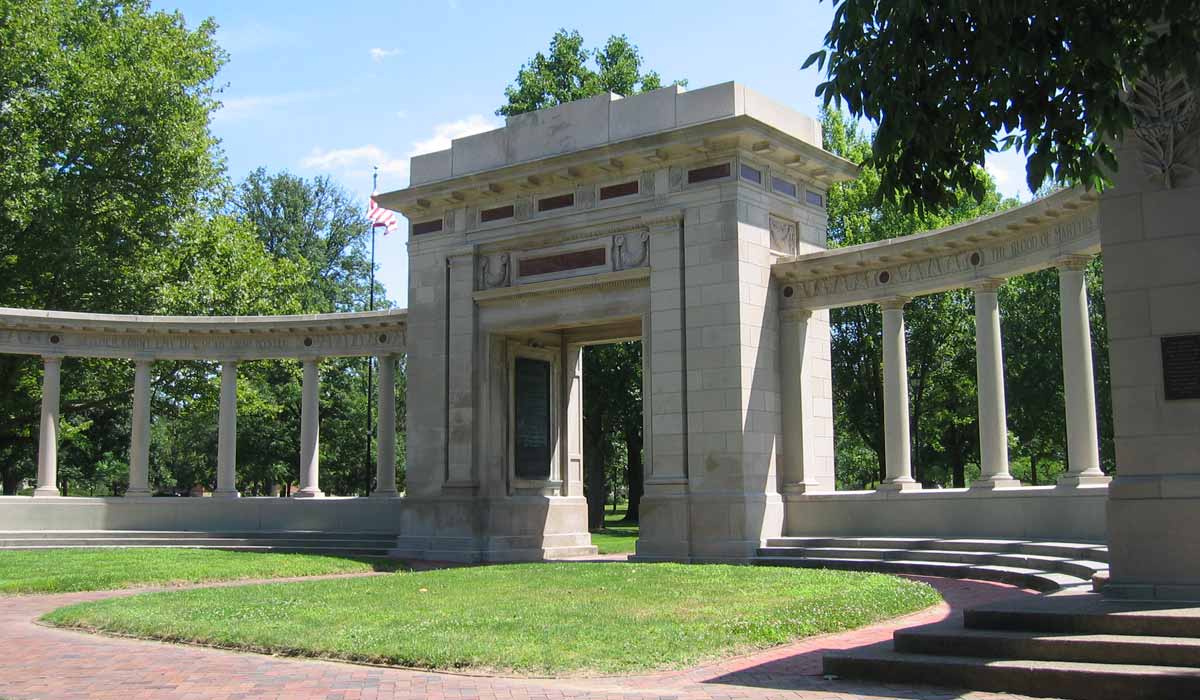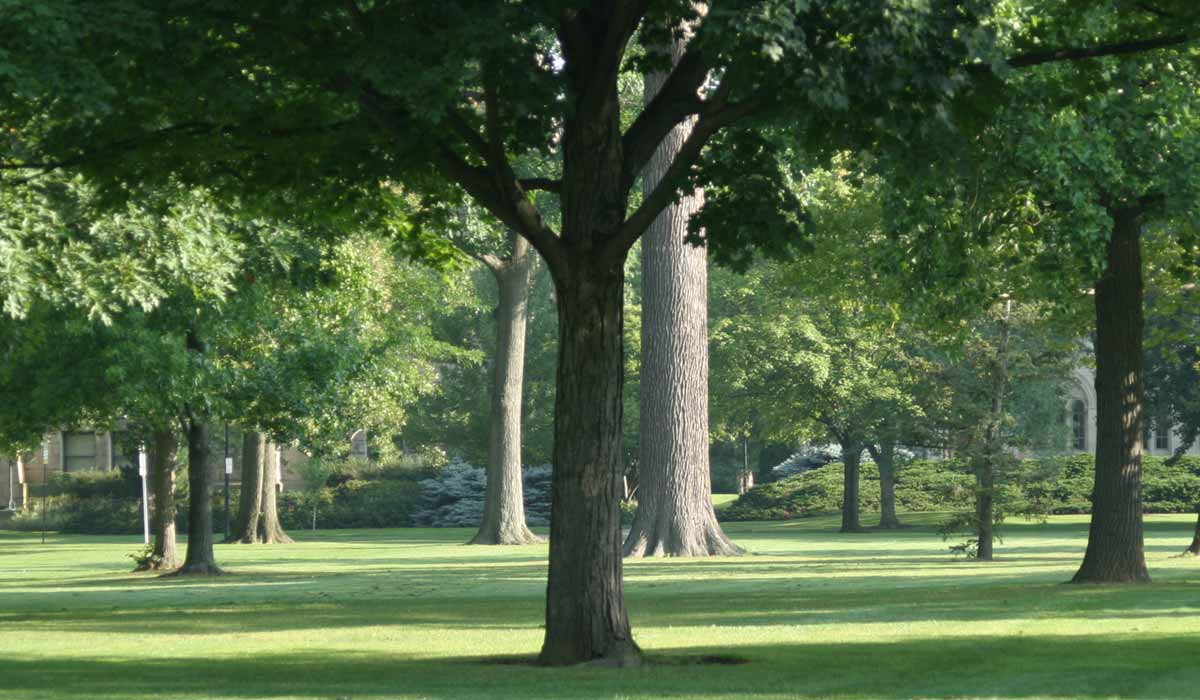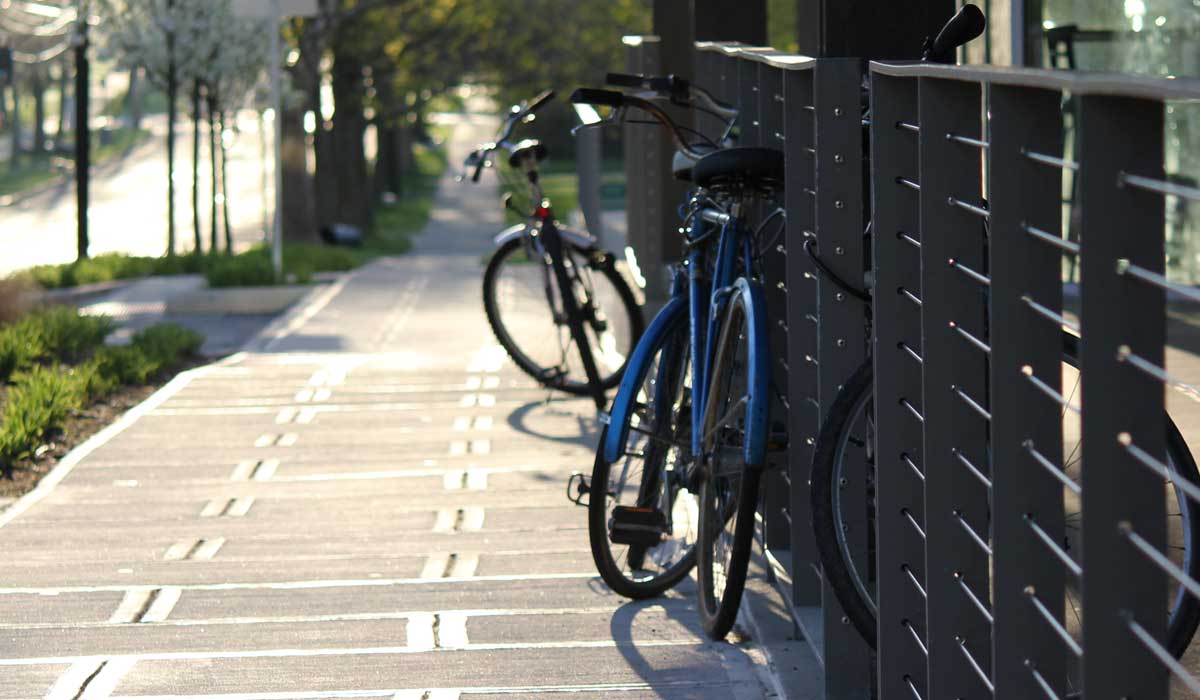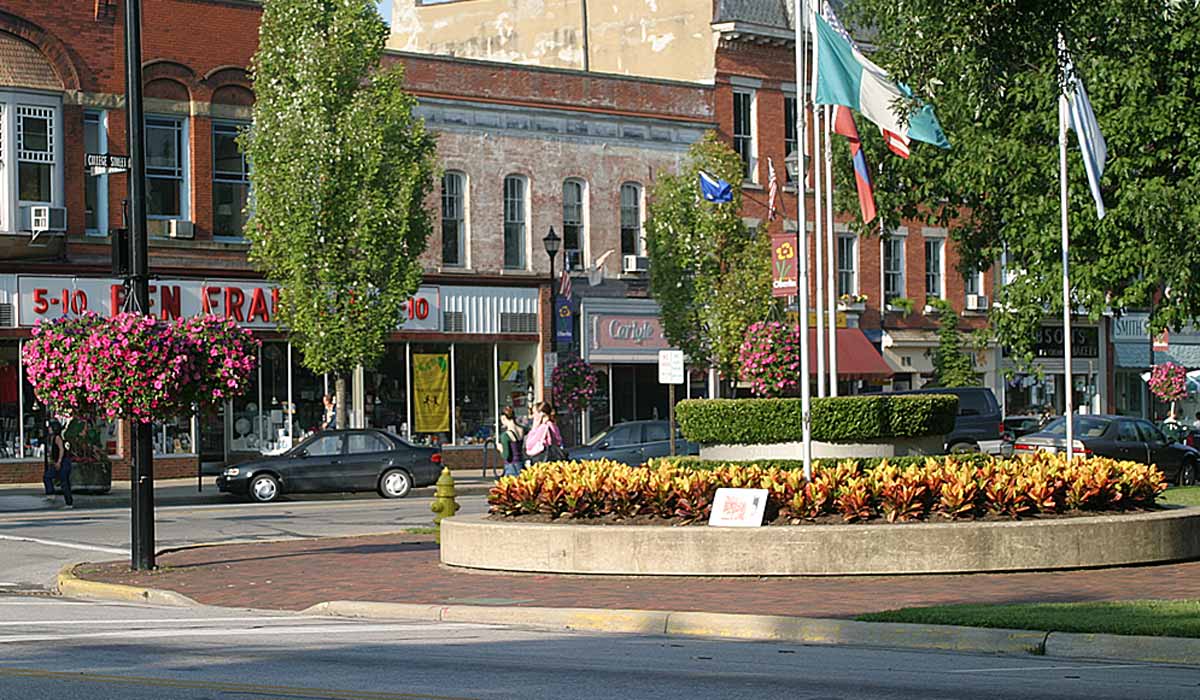Our Commitment: Sustainable Transportation
As signers of the Clinton Climate Positive Development Program, the City of Oberlin and Oberlin College are committed to reducing Oberlin's greenhouse gas emissions below zero. Our mission is:
To promote a transportation system serving the needs of all Oberlin residents, using sustainable principles, with assistance from local, county and regional community partners, to reduce carbon emissions along with negative social, economic and environmental impacts.
Oberlin College Commitments
The City of Oberlin and Oberlin College are leading by example in their commitments to reduce carbon emissions internally. As the first of its peer institutions to sign the American College and University Presidents' Climate Commitment, Oberlin College has led the way in establishing comprehensive sustainability planning and practice. These commitments have paved the way for the City's and College's participation in the Clinton Climate Positive Development Program.
City of Oberlin Commitments
As a member of ICLEI-Local Governments for Sustainability, the City of Oberlin has committed to completing a five-milestone process leading to carbon neutrality. As of 2011, the City has completed milestones two and three, setting carbon emissions reductions targets and adopting a climate action plan. The fivemilestones are:
One
Conduct a sustainability assessment
To begin the planning process, a local government needs to first research and assess environmental, economic, and social equity challenges within the jurisdiction, and the programs in place to address these issues.
Two
Set sustainability goals
The sustainability goals define the overarching objectives and scope of the sustainability plan. The goals should address the challenges identified in Milestone One. The type and number of goals can vary by jurisdiction, but they should include an emissions reduction target along with other goals addressing issues such as affordable housing, natural resources conservation, or public transportation.
Three
Develop a sustainability plan
The local government then develops a sustainability plan, ideally with robust public input from all stakeholders. The plan details the policies and measures that the local government will take to improve local sustainability and achieve the goals defined in Milestone Two. Most plans include a timeline, a description of financing mechanisms, and an assignment of responsibility to departments and staff. Milestone Three should involve a public participation component to solicit ideas from the public and to receive feedback from the public on measures being considered for the plan.
Four
Implement the sustainability plan
The local government implements the policies and measures in the sustainability plan. Typical policies and measures include initiatives often found in a climate action plan, such as energy efficiency improvements to municipal buildings and water treatment facilities, streetlight retrofits, public transit improvements, installation of renewable power applications, and methane recovery from waste management. Other initiatives could include creating more park space, developing affordable housing, or creating a green jobs workforce development program.
Five
Monitor and evaluate progress
Monitoring and verifying implementation progress is an ongoing process. Achieving Milestone Five involves annually reporting on implementation progress and monitoring the overall sustainability of the jurisdiction using the sustainability indicators identified in Milestone One.
WE ARE GUIDED BY:
 City of Oberlin 2025 Strategic Plan
City of Oberlin 2025 Strategic Plan City of Oberlin Climate Action Plan
City of Oberlin Climate Action Plan Oberlin College Environmental Policy (2004)
Oberlin College Environmental Policy (2004)- The Oberlin Project Energy Planning Committee Strategic Plan
- Oberlin Transportation Study by the Center for Neighborhood Technology
OUR GOALS
The Transportation Working Group will focus on the following four areas and facilitate the development of a work plan including overall objectives, interim and long-term implementation strategies, and policy recommendations.
- Using the Center for Neighborhood Technology as a guide to a transportation Master Plan.
- Assisting the City with investigating the Local Government Innovation Fund grant through the ODOD by September 3, 2012. Up to $100,000 grant or $500,000 loan. Looking at a collaboration with the city schools, Oberlin College and possibly other large entities within the city to assess an appropriate (or multiple) solution(s) for alternative fuel options for fleets.
- Include success story of complete street project.
- Educating the community on alternative transportation options as well as the economic, environmental, and health benefits.
- Be part of the regionalconversation
- Northeast Ohio Sustainable Communities Consortium - 12 county planning initiative
- Cleveland Rapid Transit Authority (RTA)
- Other partners: Lorain County Community College, Lorain County Joint Vocational School, etc.
- Westshore Commuter Rail (http://www.ridewestshore.com/)









